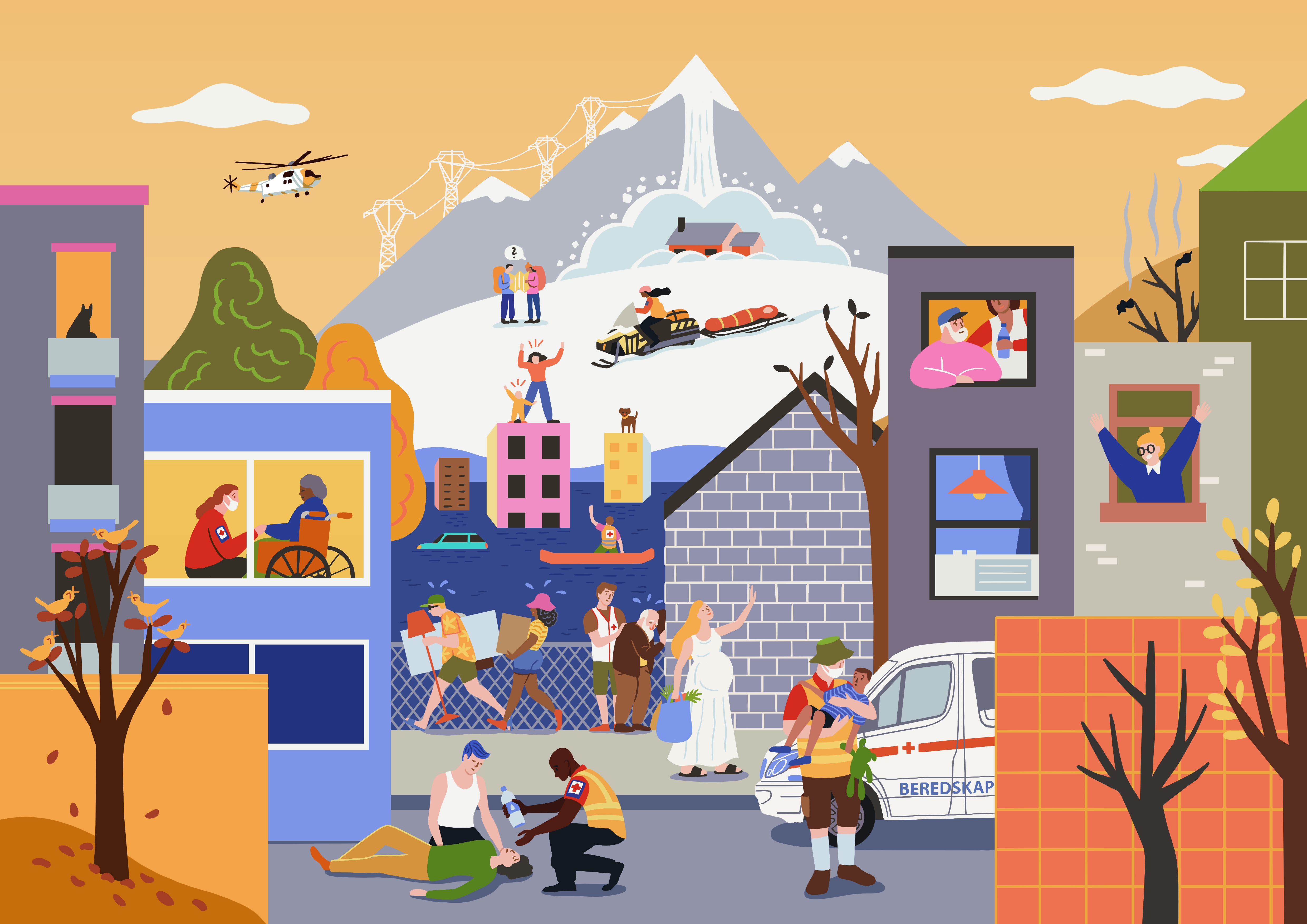Report: The Future of Volunteers in Disaster Preparedness and Emergency Response

Climate change, rural to urban migration, an aging population, municipal task shifting, and changes in the way people volunteer – many forces will affect the risk landscape local disaster preparedness and emergency response actors will have to confront in the decades to come. What do we in the Red Cross have to be aware of and start preparing for?
The outcome of a two-year research project with the Norwegian Institute for Social Research, the report “The Future of Volunteers in Disaster Preparedness and Emergency Response” investigates local capacity to manage disaster risk and emergencies in Norway.
The report summarises the main findings from research a project which reviewed demographic data and climate projections, interviewed disaster management practitioenrs and emergency responders in both government and the volunteer sectors, surveyed the opinions of Red Cross volunteers, and conducted case studies of government-volunteer disaster management partnerships.
On the basis of the research findings, the report concludes with recommendations on how to increase capacity to manage a changing risk scenario for both government disaster preparedness decision-makers and for the decision-makers within the Red Cross.
Table of Contents:
1. About the project
2. A changing risk landscape
3. Societal changes affecting the Norwegian disaster preparedness and emergency response system
4. The consequences of societal and climate changes for disaster preparedness and emergency response volunteerism
5. Disaster preparedness and emergency management cooperation at the local level
6. The collaboration between the Red Cross and the municipalities
7. Preparedness and emergency response volunteers
8. Red Cross Search and Rescue Corps and participation in SAR operations by volunteers
9. Conclusions and recommendations to the Norwegian authorities
10. The road ahead and recommendations for decision-makers in the Red Cross
Methods and underlying data
End Note
